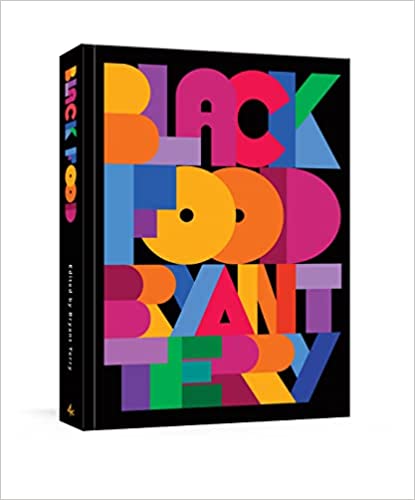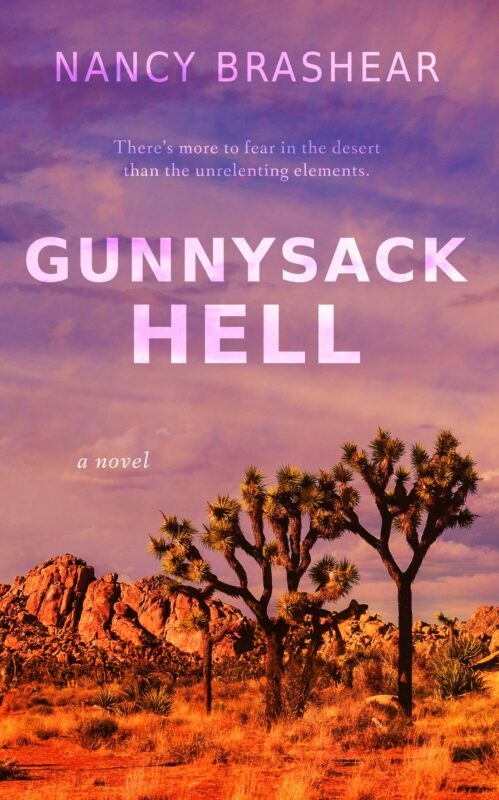When I was in business school, I learned about opportunity cost. In general, if you have $20 and you want to see a movie, eat lunch out, and buy a new blouse, all the things you don’t do with the $20 is part of the cost of what you do choose to do. So if you buy a new blouse, it cost you $20 plus eating a sack lunch plus not seeing a movie this week. If you go to a movie and have lunch out, it cost you $20 plus foregoing movie snacks plus foregoing a sit-down lunch and eating fast food instead plus waiting to buy a new blouse.
When you choose what to do with your time, what you don’t do is the cost of what you chose to do. Every time I choose to watch an hour of TV with my husband, it costs me an hour of writing (or anything else I might have done with that hour). Conversely, every time I spend an hour writing or working in the evening, it costs me an hour with my husband. How many of us have gone to see a movie that we expected to be fun and came out complaining, “Well, that’s two hours of my life I’ll never get back again!†No matter what you do with your time, it’s time you won’t get back again. That might be what someone was thinking when they came up with the slogan, “Work hard, play hard.â€
Instead of focusing on all the things we aren’t getting done (this is me, every day), we need to focus on what is the best use of our time now. In an hour, we might want to stop for a second and ask the question again. Perhaps again in four hours, or in another 30 minutes. If we can tap into a kind of moment-by-moment wisdom and allow ourselves to accept that we likely won’t accomplish everything we want to do – or perhaps even need to do – we can find greater peace and deeper joy in every moment, no matter what we’re doing.
Next week, I’m going to participate in a Book-in-a-Week challenge with my Sydney RWA group. To do that, it will cost me a great deal. I won’t be able to work on my taxes (the Australian tax year ends June 30); I won’t be able to clean my office; I won’t be able to do any but the most basic housecleaning; I won’t be able to hang out with friends, etc. But I’ve decided the cost is worth the benefit. I want to get my book out in August, and this is what it’s going to take.
The following week, one of the first things I’m going to do is clean my office. While this can be a procrastination technique, sometimes not doing it has too high a price. The time it took me to complete my U.S. taxes earlier this year was nearly double because I couldn’t find all my files after I moved. In the last ten months that we’ve been in this apartment, I have spent 20-30 hours (conservative estimate) looking for things that I couldn’t find because I never finished organizing my office (nor the office stuff that never made it into the office). The cost of organizing will probably be 10-15 hours of writing time. But the benefit will be 20-40 extra hours of writing time in the next six months because I won’t have to spend time digging through piles and boxes again.
Opportunity cost can feel double-edged – no matter what good you do with your time (writing, helping a friend), there is some other good you are not doing (spending time with family, doing taxes). And I feel a hundred times worse when I look back and realize I’ve made a poor choice, not even a halfway decent choice. (Because I watched two hours of TV on my lunch break, I now have to write or do taxes when John is home so I can’t spend time with him.) What is a person to do?
I find one of the best sources of wisdom to be the book of James in the Bible. James says trials and testing develop perseverance, which develops character. He says if anyone lacks wisdom, she should ask God who gives it generously to all. If we have faith, but don’t follow it up with work, our faith is pointless. So if I believe I’m good enough to be published but I don’t finish my manuscripts and send them out, my faith in my gifts is useless to me.
But James also encourages us to take a deep breath and remember we’re only human and we all stumble in many ways. He reminds us that bitter envy and selfish ambition do not help us succeed in any goal. He says wisdom that comes from heaven is pure, peace-loving, considerate and more. (You’ll find these in a good writer’s group.) He reminds us that we don’t even know how long our lives are or what will happen in them, so not to get hung up on set-in-concrete goals. We should just say, if God and life allow it, I will do this or that. He also encourages us to have patience, to remember that a farmer does a lot of work, and then does a lot of waiting while the crop grows.
And that is the rounded view of opportunity cost – we make goals, we count the cost, we ask for wisdom, we make decisions, we work hard, we remember we’re only human, and we accept that life may change our goals over time. When I keep this mind, I find my life more peaceful, joyful and productive. I hope it helps you, too.
Kitty Bucholtz is the co-founder of Routines for Writers, a web site dedicated to helping writers write more. She writes romance novels, light urban fantasy novels for adults and young adults, and magazine articles. She is currently enrolled in the Master of Arts in Creative Writing program at University of Technology, Sydney.
- Author Details
- Books on Sale
- New Releases
- Contact Us
- Be in the Spotlight
Books on sale or free

Related
Affiliate Links
A Slice of Orange is an affiliate with some of the booksellers listed on this website, including Barnes & Nobel, Books A Million, iBooks, Kobo, and Smashwords. This means A Slice of Orange may earn a small advertising fee from sales made through the links used on this website. There are reminders of these affiliate links on the pages for individual books.
Search A Slice of Orange
Find a Column
Archives
Featured Books
SHOULD HAVE PLAYED POKER
Truth and integrity aren’t always what we’ve been taught to believe, and one could die making that discovery.
More info →
BLACK FOOD: STORIES, ART & RECIPES FROM ACROSS THE AFRICAN DIASPORA
Beautiful, rich, and groundbreaking . . .
More info →TRACKING SHADOWS
When danger whispers in the dark, the shadows are the last place to hide…
More info →FIRST ENCOUNTERS OF LOVE
The FIRST ENCOUNTERS OF LOVE box set includes three stories of romantic firsts.
More info →Newsletter
Contributing Authors
Search A Slice of Orange
Find a Column
Archives
Authors in the Bookstore
- A. E. Decker
- A. J. Scudiere
- A.J. Sidransky
- Abby Collette
- Alanna Lucus
- Albert Marrin
- Alice Duncan
- Alina K. Field
- Alison Green Myers
- Andi Lawrencovna
- Andrew C Raiford
- Angela Pryce
- Aviva Vaughn
- Barbara Ankrum
- Bethlehem Writers Group, LLC
- Carol L. Wright
- Celeste Barclay
- Christina Alexandra
- Christopher D. Ochs
- Claire Davon
- Claire Naden
- Courtnee Turner Hoyle
- Courtney Annicchiarico
- D. Lieber
- Daniel V. Meier Jr.
- Debra Dixon
- Debra H. Goldstein
- Debra Holland
- Dee Ann Palmer
- Denise M. Colby
- Diane Benefiel
- Diane Sismour
- Dianna Sinovic
- DT Krippene
- E.B. Dawson
- Emilie Dallaire
- Emily Brightwell
- Emily PW Murphy
- Fae Rowen
- Faith L. Justice
- Frances Amati
- Geralyn Corcillo
- Glynnis Campbell
- Greg Jolley
- H. O. Charles
- Jaclyn Roché
- Jacqueline Diamond
- Janet Lynn and Will Zeilinger
- Jaya Mehta
- Jeff Baird
- Jenna Barwin
- Jenne Kern
- Jennifer D. Bokal
- Jennifer Lyon
- Jerome W. McFadden
- Jill Piscitello
- Jina Bacarr
- Jo A. Hiestand
- Jodi Bogert
- Jolina Petersheim
- Jonathan Maberry
- Joy Allyson
- Judy Duarte
- Justin Murphy
- Justine Davis
- Kat Martin
- Kidd Wadsworth
- Kitty Bucholtz
- Kristy Tate
- Larry Deibert
- Larry Hamilton
- Laura Drake
- Laurie Stevens
- Leslie Knowles
- Li-Ying Lundquist
- Linda Carroll-Bradd
- Linda Lappin
- Linda McLaughlin
- Linda O. Johnston
- Lisa Preston
- Lolo Paige
- Loran Holt
- Lynette M. Burrows
- Lyssa Kay Adams
- Madeline Ash
- Margarita Engle
- Marguerite Quantaine
- Marianne H. Donley
- Mary Castillo
- Maureen Klovers
- Megan Haskell
- Melanie Waterbury
- Melisa Rivero
- Melissa Chambers
- Melodie Winawer
- Meriam Wilhelm
- Mikel J. Wilson
- Mindy Neff
- Monica McCabe
- Nancy Brashear
- Neetu Malik
- Nikki Prince
- Once Upon Anthologies
- Paula Gail Benson
- Penny Reid
- Peter Barbour
- Priscilla Oliveras
- R. H. Kohno
- Rachel Hailey
- Ralph Hieb
- Ramcy Diek
- Ransom Stephens
- Rebecca Forster
- Renae Wrich
- Roxy Matthews
- Ryder Hunte Clancy
- Sally Paradysz
- Sheila Colón-Bagley
- Simone de Muñoz
- Sophie Barnes
- Susan Kaye Quinn
- Susan Lynn Meyer
- Susan Squires
- T. D. Fox
- Tara C. Allred
- Tara Lain
- Tari Lynn Jewett
- Terri Osburn
- Tracy Reed
- Vera Jane Cook
- Vicki Crum
- Writing Something Romantic
Affiliate Links
A Slice of Orange is an affiliate with some of the booksellers listed on this website, including Barnes & Nobel, Books A Million, iBooks, Kobo, and Smashwords. This means A Slice of Orange may earn a small advertising fee from sales made through the links used on this website. There are reminders of these affiliate links on the pages for individual books.




























































































































It's good to hear when one's own thoughts, shared with others, encourage others. And then their comments – that's you guys! – encourage you right back! 🙂
Excellent post, Kitty. I actually adopted that verse from James about not just making my own plans, but instead adding a "God willing" to them as my motto this year. Which I must admit means the year isn't going at all how I planned!
Great Post, Kitty!
Thanks for the encouragement, Kitty. This was what I needed to hear today.